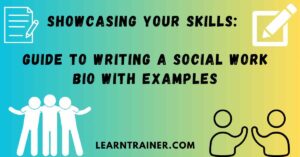Have you ever felt like your emotional state is spiraling out of control? Perhaps you’re at work, dealing with a difficult situation, and suddenly, you feel completely overwhelmed, like you’re about to lose it.
Or maybe you’re at home, surrounded by everyday stressors, and before you know it, you’re in tears, unable to think clearly. These intense emotional experiences might make you wonder: Is this a meltdown or a breakdown?
In this article, we’ll explore the key differences between a meltdown and a breakdown, how they affect your mental and emotional health, and most importantly, how to manage them in healthy ways.
Whether you’ve experienced one or both, or you’re trying to understand someone else going through these emotions, this guide will provide helpful insights, practical steps, and tips for dealing with emotional overwhelm.
What Is a Meltdown?
Let’s start with meltdowns, a term that’s often used to describe intense emotional reactions that feel uncontrollable. While meltdowns are typically associated with children or individuals with autism or other developmental disorders, they can occur in adults as well.
A meltdown occurs when a person reaches their emotional threshold, and they react in a way that might seem irrational or extreme to others.
It’s often triggered by sensory overload, stress, or feeling like their emotional resources have been depleted. Think of it like a pressure cooker—once the pressure builds too high, it bursts.
Common Triggers of a Meltdown
- Sensory Overload: Loud noises, bright lights, or crowded spaces can overwhelm the senses, leading to a meltdown.
- Emotional Exhaustion: When someone has been under continuous stress or emotional strain, they might suddenly snap.
- Unresolved Anxiety: A situation that brings out unresolved feelings of anxiety or fear can lead to an emotional outburst.
Signs of a Meltdown
- Physical Symptoms: Increased heart rate, sweating, rapid breathing, and shaking.
- Behavioral Signs: Outbursts, crying, yelling, or even hitting or kicking.
- Cognitive Symptoms: Confusion, an inability to focus, or a sense of complete detachment from reality.
How to Handle a Meltdown
While meltdowns are highly emotional, they are often short-lived. The best way to manage a meltdown is to remove the person from the triggering environment (if possible) and provide them with space to cool down. This might involve taking deep breaths, finding a quiet place, or engaging in calming activities like deep breathing or meditation.
What Is a Breakdown?
On the other hand, a breakdown refers to a more prolonged and intense collapse of emotional or psychological stability.
A breakdown typically involves a complete loss of coping mechanisms and often occurs when someone has been under significant stress for a long time, without the emotional resources to recover.
While meltdowns are generally associated with specific triggers, a breakdown tends to stem from ongoing emotional overload. You might hear people say,
“I’m having a breakdown,” when they feel like they can’t cope anymore, either with a specific situation or with life in general.
Causes of a Breakdown
- Chronic Stress: Prolonged exposure to stress at work, home, or in relationships can lead to a breakdown.
- Trauma or Grief: Experiencing trauma, losing a loved one, or undergoing significant emotional hardship can result in a breakdown.
- Mental Health Disorders: Depression, anxiety, and other mental health issues can trigger a breakdown.
Symptoms of a Breakdown
- Emotional Turmoil: Constant crying, irritability, feelings of worthlessness or hopelessness.
- Physical Effects: Insomnia, fatigue, weight changes, and stomach issues.
- Cognitive Impairment: Difficulty concentrating, memory problems, or feeling emotionally numb.
How to Handle a Breakdown
While meltdowns are often short-lived, breakdowns may require more time and support to heal. It’s essential to reach out to a mental health professional for guidance, especially if you’re dealing with anxiety, depression, or trauma. Additionally, practicing self-care techniques like exercise, sleep, and mindfulness can help in your recovery process.
Meltdown vs Breakdown: Key Differences
Understanding the difference between a meltdown and a breakdown can be tricky because they both involve intense emotional experiences. Below is a helpful comparison of the two:
| Aspect | Meltdown | Breakdown |
| Duration | Short-term, often lasting minutes to an hour. | Long-term, potentially lasting days or weeks. |
| Cause | Triggered by a specific event or sensory overload. | Caused by chronic stress, trauma, or mental health issues. |
| Emotional Response | Intense, but usually focused on one emotional aspect (e.g., frustration or anxiety). | Overwhelming, often involving a wide range of emotions. |
| Behavior | Outbursts like crying, shouting, or aggression. | Withdrawal, isolation, or inability to function. |
| Recovery Time | Quick recovery once the trigger is removed. | Requires time and often professional help to heal. |
Personal Insight
As someone who has experienced both a meltdown and a breakdown, I can tell you that the emotional toll is vastly different. A meltdown feels like a sudden surge of emotion like I’ve reached my limit and need to express myself immediately.
However, a breakdown feels more like an emotional collapse—an ongoing struggle with emotions that makes it hard to do even the simplest things.
How to Prevent or Manage Meltdowns and Breakdowns
While we can’t always predict when a meltdown or breakdown might occur, there are steps we can take to reduce the likelihood or lessen their impact. Let’s break down some of these steps:
Practice Emotional Awareness
The first step to preventing emotional overwhelm is understanding your emotional triggers. Start by keeping a journal where you write down what stresses you out, how you feel during stressful moments, and what might have caused it. Becoming more aware of your emotional state helps you to intervene before you reach the boiling point.
Develop Coping Mechanisms
Having coping mechanisms in place is key to managing stress before it spirals out of control. These mechanisms might include mindfulness meditation, exercise, journaling, or even talking to a friend. Having an emotional toolkit that works for you can help you navigate challenging situations with more ease.
Seek Professional Help
If you find that you frequently experience meltdowns or breakdowns, especially due to mental health issues, it’s important to seek therapy.
A professional can guide you in understanding the root causes and provide tailored strategies to help manage your emotions. Therapy isn’t just for those in crisis—it’s a tool that can improve overall mental well-being.
Take Regular Breaks
Whether it’s a 5-minute walk or a weekend getaway, taking time for yourself is vital. Overworking yourself emotionally, physically, and mentally leads to burnout, which makes meltdowns and breakdowns more likely. Regular breaks give your brain and body the chance to rest and recharge, preventing emotional overload.
Build a Support Network
Having a solid support network of friends, family, or even support groups can make all the difference. When you feel overwhelmed, reaching out to someone who understands your emotions can be incredibly comforting. Remember, you don’t have to go through it alone.
Conclusion
In summary, meltdowns and breakdowns are both emotional experiences that are triggered by stress and overwhelm, but they differ in intensity, duration, and underlying causes.
Meltdowns are often short-lived outbursts triggered by specific events, while breakdowns are more prolonged periods of emotional collapse, often requiring professional support for recovery.
To better manage these emotional challenges, practice emotional awareness, develop healthy coping mechanisms, and don’t hesitate to seek professional help when needed.
Taking care of your mental and emotional health is a lifelong journey, and with the right tools, you can navigate even the toughest of times.
FAQs
- What’s the best way to prevent a meltdown at work?
- Regular breaks, mindfulness techniques, and clear communication with coworkers or supervisors can help reduce stress and prevent a meltdown. Recognizing your stress triggers is key!
- How do I know when I’m having a breakdown?
- Symptoms like persistent sadness, difficulty concentrating, and an overwhelming feeling of being unable to cope can indicate you’re heading toward a breakdown. It’s important to seek help before things escalate.
- Is it normal to feel like you’re having a meltdown for no reason?
- Yes, sometimes meltdowns can be triggered by a buildup of smaller stressors. It’s important to acknowledge these feelings and take steps to care for your mental health regularly.
- Can therapy help with both meltdowns and breakdowns?
- Absolutely! Therapy can provide tools and strategies to help manage both meltdowns and breakdowns by addressing the underlying causes of emotional distress.


